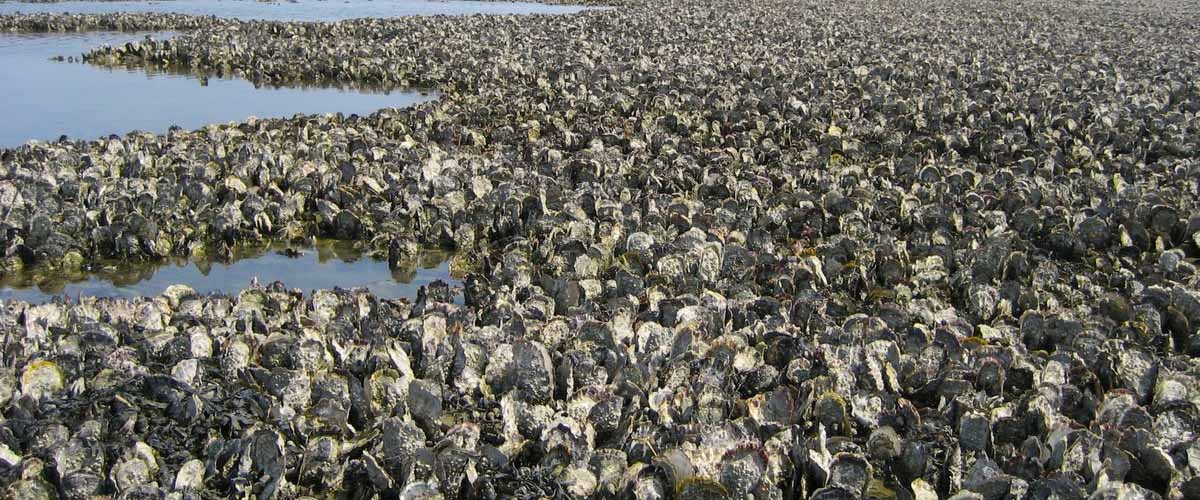Ocean acidification, resulting from increased levels of atmospheric carbon dioxide caused by human activities, has altered species interactions and community structure within marine ecosystems. To investigate these impacts, University of North Carolina graduate student Luke Dodd, advised and assisted by a team of MSC and UNC researchers, including Associate Professors Jonathan Grabowski, Justin Ries, and Michael Piehler, as well as Research Technician Isaac Westfield, documented how interactions between mud crabs and oysters are affected by ocean acidification.
The study, published in the Proceedings of the Royal Society B, investigated how carbon dioxide driven ocean acidification would alter the predator-prey interactions between mud crabs and oysters in oyster reef communities. To achieve this, the team measured the impact of acidification on crab and oyster calcification rates, which affect shell formation and an organism’s ability to resist predation. They also documented how acidification affects the ability of mud crabs to detect and obtain their oyster prey.
Results indicate that the rate of successful mud crab predation on juvenile oysters was reduced under elevated carbon dioxide. Although the rate of oyster calcification was also lowered by acidification, making the oysters more vulnerable to predation, this was not enough to offset acidification’s negative impact on the crabs’ foraging abilities. Since encounters between crabs and oysters did not decrease as a result of acidification, it was concluded that acidification impairs the crabs’ ability to prey upon oysters – despite the oysters having a thinner shell.
Although it is unclear how mud crabs and oysters will adapt to ocean acidification over the long-term, these findings help us understand the short-term effects of acidification on oyster reef communities and identify potentially selective forces in the evolution of these two species over longer timescales. Application of these findings to the management of crustacean and oyster fisheries is critical to protecting the ecosystem services that oyster reefs provide, such as natural water filtration and supporting economically important fish species.

